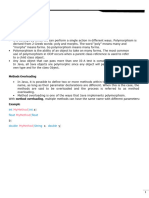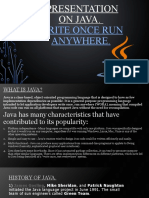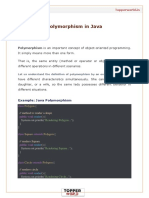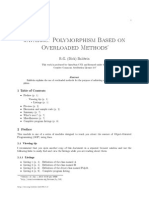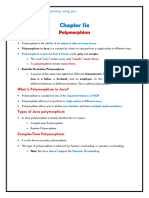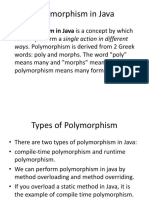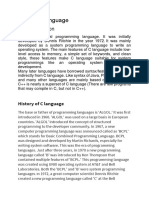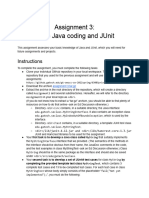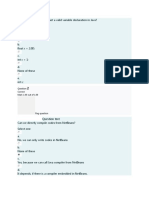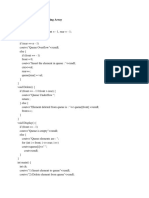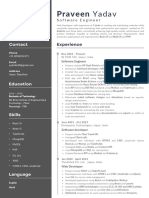0% found this document useful (0 votes)
43 views13 pagesLecture - Polymorphism
This document discusses polymorphism in Java, which can be achieved through method overloading and method overriding. Method overriding allows subclasses to provide specific implementations of methods declared in superclasses, and is an example of runtime polymorphism. Method overloading involves creating multiple methods with the same name but different parameters. The document also discusses constructor overloading, operator overloading in Java using the + operator, and polymorphic variables that can refer to different types.
Uploaded by
MehwishCopyright
© © All Rights Reserved
We take content rights seriously. If you suspect this is your content, claim it here.
Available Formats
Download as PDF, TXT or read online on Scribd
0% found this document useful (0 votes)
43 views13 pagesLecture - Polymorphism
This document discusses polymorphism in Java, which can be achieved through method overloading and method overriding. Method overriding allows subclasses to provide specific implementations of methods declared in superclasses, and is an example of runtime polymorphism. Method overloading involves creating multiple methods with the same name but different parameters. The document also discusses constructor overloading, operator overloading in Java using the + operator, and polymorphic variables that can refer to different types.
Uploaded by
MehwishCopyright
© © All Rights Reserved
We take content rights seriously. If you suspect this is your content, claim it here.
Available Formats
Download as PDF, TXT or read online on Scribd
/ 13








